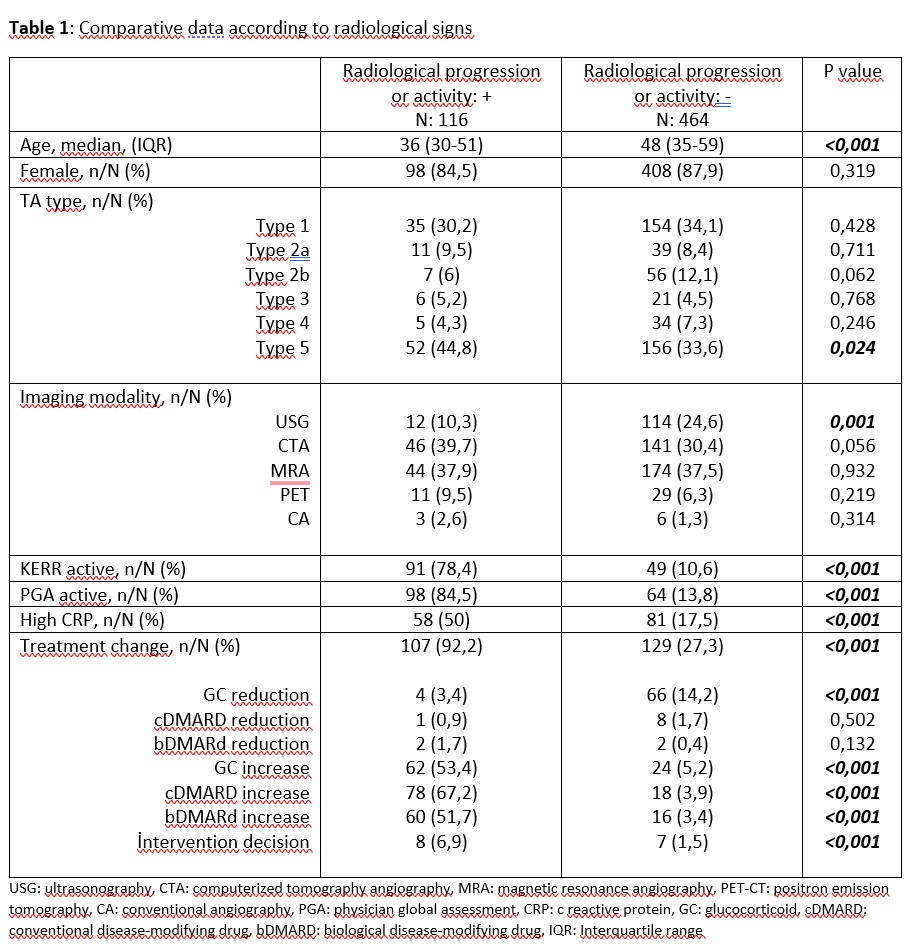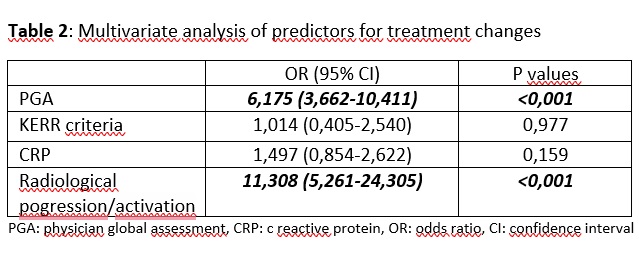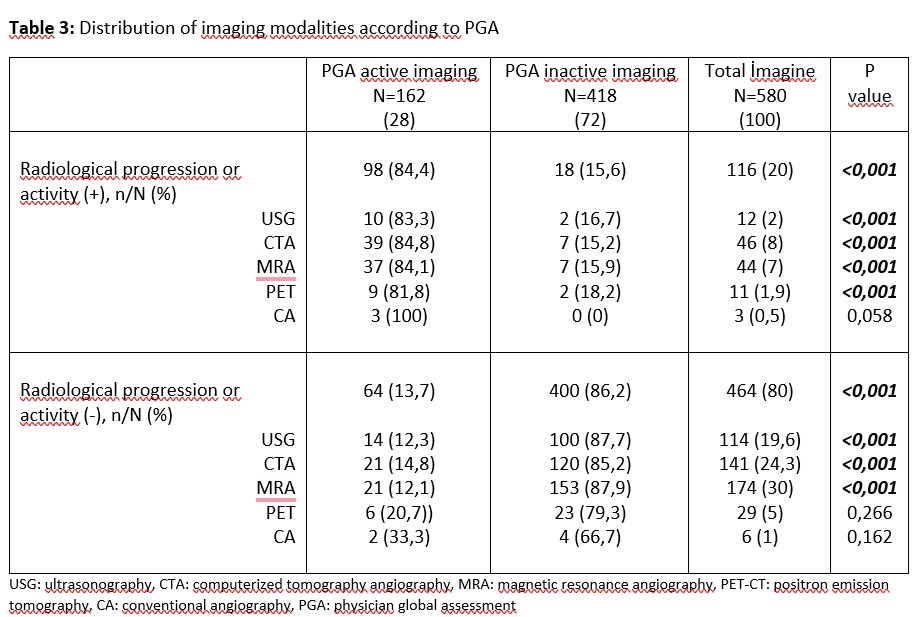Session Information
Date: Sunday, November 17, 2024
Title: Vasculitis – Non-ANCA-Associated & Related Disorders Poster II
Session Type: Poster Session B
Session Time: 10:30AM-12:30PM
Background/Purpose: The understanding of progression or minimal disease activity in patients with Takayasu arteritis (TA) can be complicated due to the possibility of mild vascular inflammation without clinical signs and ongoing vascular fibrosis independent of disease activity. EULAR recommends based on clinical findings, while ACR directly recommends regularly scheduled noninvasive imaging in addition to routine clinical assessment. However, the literature regarding the impact of regular imaging in clinical practice is limited. The aim of this study is to understand the relationship of imaging decisions with clinical activity and their impact on clinical practice in the follow-up of TA patients.
Methods: A total of 204 adult patients with TA who followed up in 11 tertiary centers in Turkey were included in this study. All patients met the 1990 ACR Takayasu arteritis diagnostic criteria. These centers applied their preferences regarding the frequency of screening as well as the imaging method in follow-up. All imaging, clinical, and laboratory findings of the patients were obtained retrospectively from outpatient files. At each imaging visit, disease activity status and whether treatment changes were made were recorded. It was designed as a retrospective study.
Results: The median age of the patients was 44 (33-56) years, the median follow-up time was 6 years, and 177 (86,8%) of them were women (Table 1). A total of 580 imaging modalities were recorded for 204 patients. The most preferred imaging modalities by clinicians were MR angiography (37.5%) and CT angiography (32.2%). Progression and/or activity was found in 116 (20%) of a total of 580 imaging. It was observed that treatment changes were made in 236 (41%) of the visits. The physician’s global assessment (PGA) and the presence of radiological progression or activity were independent factors for treatment change (Table 2). It was found that 418 (72%) of the images were performed while PGA was inactive (Table 3). Radiological progression and/or activity was detected in only 18 (4%) of the PGA inactive imaging.
Conclusion: PGA and radiological progression and/or activity are the main determinants of treatment decisions in TA. However, there were no progression as well as activity in the imaging applied in the majority of patients. Moreover, in patients thought to be clinically inactive, radiological findings were often not significant enough to change treatment. In the follow-up of patients with TA, performing imaging on an individual basis may alleviate the workload, prevent additional radiation exposure, and be more cost-effective compared to applying regularly scheduled imaging. Analyzes regarding the effect of regularly scheduled imaging on the damage outcomes are ongoing.
To cite this abstract in AMA style:
Yildirim F, Bes C, Kutu M, Tastekin F, Keser G, Ocak T, Dalkilic E, Pehlivan Y, Kocaayan H, Akar S, İsik S, Omma A, San S, Yazici A, Cefle A, Bakkal S, Kenar G, Onen F, Avcu A, Alibaz Öner F, Direskeneli H, Uludogan B, yaşar Bile N, Alpay Kanıtez N. Is Regular Vascular Imaging Scheduled Essential in the Follow-Up of Takayasu Arteritis? A Large-Scale Multicenter Cohort Study [abstract]. Arthritis Rheumatol. 2024; 76 (suppl 9). https://acrabstracts.org/abstract/is-regular-vascular-imaging-scheduled-essential-in-the-follow-up-of-takayasu-arteritis-a-large-scale-multicenter-cohort-study/. Accessed .« Back to ACR Convergence 2024
ACR Meeting Abstracts - https://acrabstracts.org/abstract/is-regular-vascular-imaging-scheduled-essential-in-the-follow-up-of-takayasu-arteritis-a-large-scale-multicenter-cohort-study/



